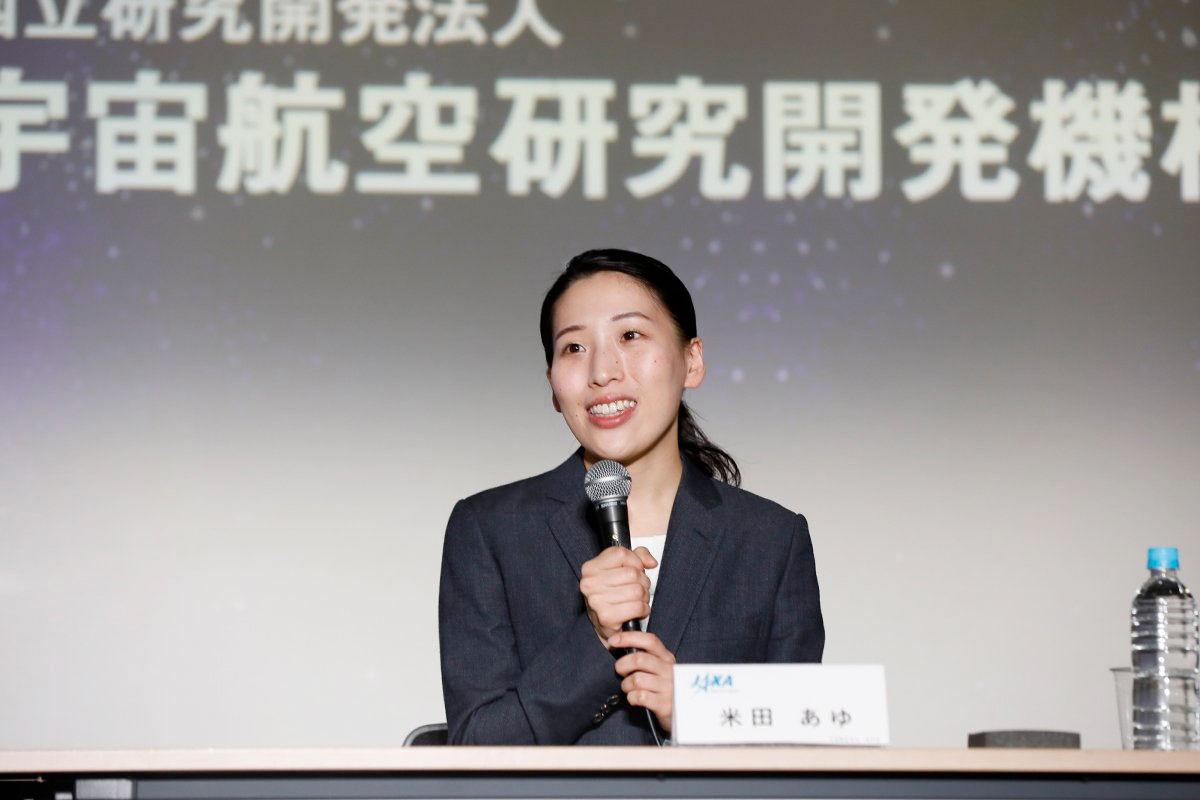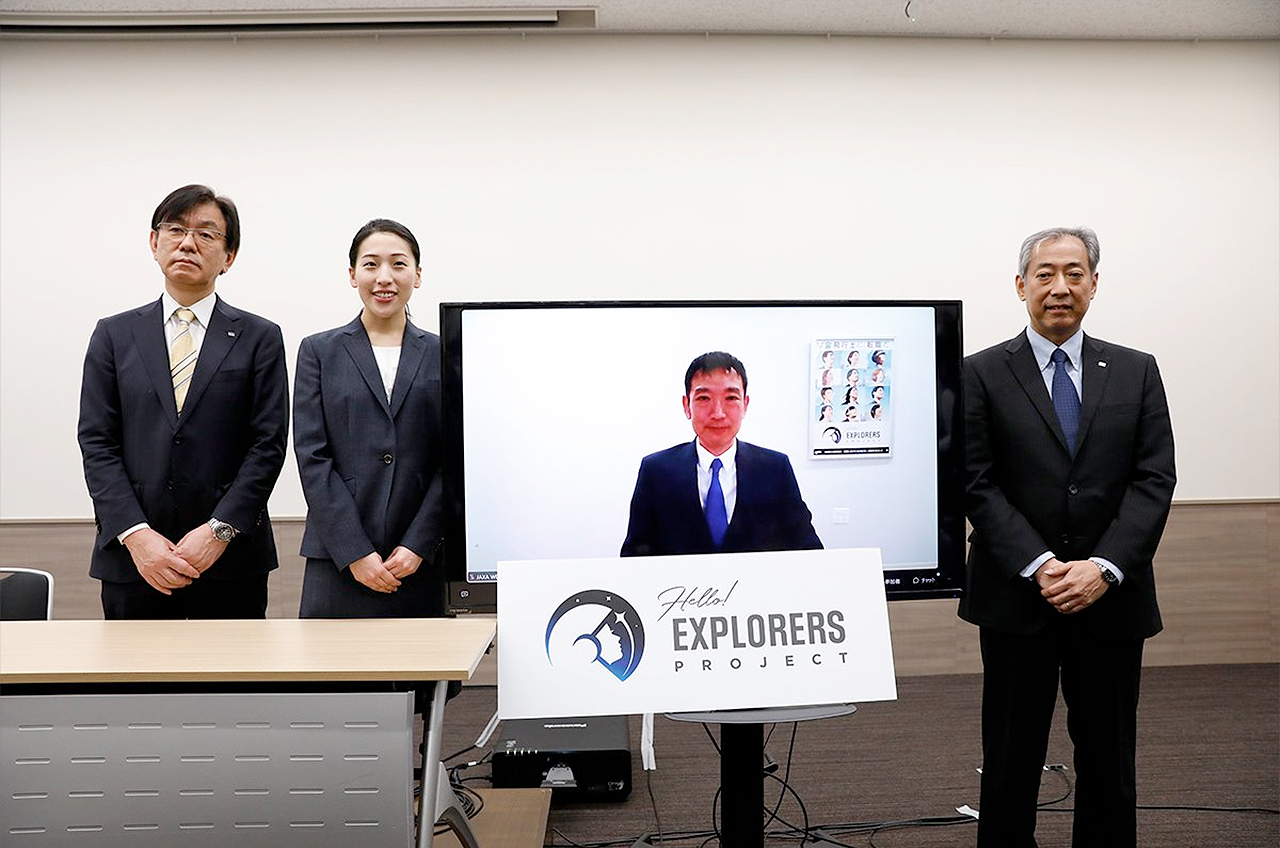JAXA selects 2 new astronaut candidates for future flights to the moon
Makoto Suwa and Ayu Yoneda could fly to the moon as part of NASA's partnership with JAXA on the Artemis program.

Japan has selected its first new astronaut candidates in more than 13 years in preparation for future missions to the moon with NASA's Artemis program.
Hiroshi Yamakawa, president of the Japan Aerospace Exploration Agency (JAXA), named Makoto Suwa, a 46-year-old risk reduction specialist at the World Bank, and Ayu Yoneda, a 28-year-old surgeon working for the Japanese Red Cross Medical Center, as the agency's new recruits at a press conference held in Tokyo on Tuesday (Feb. 28).
Both candidates will now undergo two years of basic training, after which they will be assessed by JAXA for spaceflight assignments. Suwa and Yoneda are the 12th and 13th people to be chosen for Japan's human spaceflight program since the country's first career astronauts were selected in 1985.
Currently, JAXA has six active astronauts, all of whom are men, including Koichi Wakata, who is wrapping up his fifth spaceflight and third long-duration stay aboard the International Space Station. If successful in qualifying as an astronaut, Yoneda will become Japan's third woman to fly into space, after Chiaki Mukai and Naoko Yamazaki, who are both retired from the program.
Related: Amazing photos by Japanese astronaut Koichi Wakata

In addition to possible flights to the space station, Suwa and Yoneda may work on the Gateway, a NASA-led platform still to be built in lunar orbit that is being developed in partnership with JAXA. Or they might be chosen to land on the moon on NASA Artemis missions.
"I think that the moon is something that Japanese people have a very special attachment to, and at the same time, I think that the moon is something that we take for granted, but that gives us a sense of wonder," said Suwa, who attended Tuesday's conference virtually from Washington, D.C. "I would like to do my best in my training from now on so that I can contribute to the Artemis program as much as possible."
Breaking space news, the latest updates on rocket launches, skywatching events and more!
Yoneda expressed similar enthusiasm for one day exploring the lunar surface.
"If I had a chance to go there, I want to take on the challenge," she said. "If I can stand on the moon, I would like to pass on my experiences. I would like to devote myself to it."

JAXA began its latest astronaut recruitment process in November 2021, resulting in a record 4,127 applications being received. Dubbed the "Hello! Explorers Project," the selection was Japan's first not to require a college diploma as a base requirement (though both Suwa and Yoneda have earned advanced degrees).
After a series of exams, including in English and the liberal arts, and screenings, JAXA narrowed the pool down to 50 and then 10 candidates by December 2022. Among the finalists, Suwa was the oldest and Yoneda the youngest.
"The fact that I was selected at this age means that I will be asked what kind of added value I can give back to society by multiplying my experience so far," said Suwa. "I think that I will continue to concentrate on training for the next few years, but in the back of my mind, I would like to constantly think about how I can make use of my experience as an astronaut."
The three members of Japan's previous astronaut class selected in 2009 each offered their congratulations to their new colleagues.
"I hope that the diversity of the group will increase with the addition of their knowledge and experience, and that we will be able to produce even greater results for future lunar exploration missions and the development of low Earth orbit activities, including those of the private sector," said Norishige Kanai, who joined his fellow astronauts, Yui Kimiya and Takuya Onishi, in sending messages.
Follow collectSPACE.com on Facebook and on Twitter at @collectSPACE. Copyright 2023 collectSPACE.com. All rights reserved.

Robert Pearlman is a space historian, journalist and the founder and editor of collectSPACE.com, a daily news publication and community devoted to space history with a particular focus on how and where space exploration intersects with pop culture. Pearlman is also a contributing writer for Space.com and co-author of "Space Stations: The Art, Science, and Reality of Working in Space” published by Smithsonian Books in 2018.
In 2009, he was inducted into the U.S. Space Camp Hall of Fame in Huntsville, Alabama. In 2021, he was honored by the American Astronautical Society with the Ordway Award for Sustained Excellence in Spaceflight History. In 2023, the National Space Club Florida Committee recognized Pearlman with the Kolcum News and Communications Award for excellence in telling the space story along the Space Coast and throughout the world.

